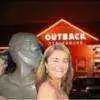-
Welcome to Celiac.com!
You have found your celiac tribe! Join us and ask questions in our forum, share your story, and connect with others.
-
Celiac.com Sponsor (A1):
Celiac.com Sponsor (A1-M):
-
Get Celiac.com Updates:Support Our Content
Anyone Seen Dannon Commercial?
-
Get Celiac.com Updates:Support Celiac.com:
-
Celiac.com Sponsor (A17):
Celiac.com Sponsor (A17):
Celiac.com Sponsors (A17-M):
-
Recent Activity
-
- Wheatwacked replied to numike's topic in Food Intolerance & Leaky Gut7
is my celiac disease gone?
I should point out that iodine is known to exasperate dermatitis herpetiformis blistering. It can take several months or even years of a strict gluten-free diet for the IgA-TG3 deposits to clear from the skin. After the skin completely heals, iodine may no longer trigger symptoms. "The circulating antibodies disappear and skin symptoms resolve as... -
- Wheatwacked replied to numike's topic in Food Intolerance & Leaky Gut7
is my celiac disease gone?
I get my supplements f from Pipingrock.com close to 10 years now. Good quality, prices, ship worldwide. My 25(OH)D is at 93 ng/ml after 10 years taking. In 2019 it had still only gotten to 47 ng/ml. Celiac Disease causes low D from malabsorption. High Potency Vitamin D3, 10,000 IU, 250 Quick Release Softgels 4.8 out of 5 stars, average rating... -
- numike replied to numike's topic in Food Intolerance & Leaky Gut7
is my celiac disease gone?
69yo M I have had skin cancer basal I use a higher quality Vit D https://www.amazon.com/Biotech-D3-5-5000iu-Capsules-Count/dp/B00NGMJRTE -
- Wheatwacked replied to numike's topic in Food Intolerance & Leaky Gut7
is my celiac disease gone?
Your high lactulose test, indicating out of control Small Itenstinal Bacterial O,vergrowth is one symptom. You likely have low vitamin D, another symptom. Unless you get lots of sun. Celiac Disease is a disease of malabsorption, often leading to subclinical vitamin deficiencies. A lot of people have these symptoms just before an acute phase of Celiac... -
- Peggy M commented on Scott Adams's article in Gluten-Free Foods & Beverages2
Are Potato Chips Gluten Free? (+Video)
Uglies are certified gluten free! I always look for that big "G". Was going to a picnic today and brought some with me to have with my new Rustic Oat Bread from B Free sandwich. Bread holds up well in a sandwich.- celiac disease
- chips
- (and 5 more)
-




Recommended Posts
Archived
This topic is now archived and is closed to further replies.